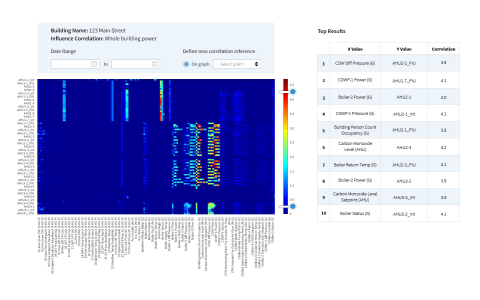by Brianna Crandall — June 15, 2018 — Energy management software company BuildingIQ has just introduced a new Outcome-based Fault Detection (OFD) service offering — a closed-loop building energy management service that helps building and portfolio operators identify issues, prioritize repairs and validate work performed. Through a combination of artificial intelligence (AI), energy analytics and human expertise, OFD was created to overcome many of the shortcomings that plague today’s fault detection and diagnostic (FDD) services. These challenges include a deluge of daily faults that are cumbersome to prioritize and action; the high cost of defining and writing rules that identify accurate faults due to a lack of documentation of how systems operate in reality versus the design documents; and a lack of accountability for fault validation. OFD is now available worldwide.

With OFD, building operators can autonomously detect, prioritize and validate building system faults using the cloud-based 5i Intelligent Energy Platform. Image courtesy BuildingIQ
Michael Nark, president and CEO of BuildingIQ, explained:
Outcome-based Fault Detection is a comprehensive solution that takes fault detection in a better and broader direction. It does this by embracing the key role played by facility experts and augments it with machine learning and cutting-edge artificial intelligence. OFD works whether data is good or spotty and leverages machine learning to take the burden of data analytics into the cloud. The result is building operators do not have to waste valuable time and resources scouring through tables of hundreds of daily faults. Instead, with OFD, operators can focus on the things that truly need fixing — their tenants and the bottom line.
OFD is the service on top of BuildingIQ’s 5i Intelligent Energy Platform that sits between the huge transition in the building operations journey from energy visualization to predictive energy optimization. The steps of OFD are:
- Baseline — Understanding the building’s energy profile and how it acts in varying weather;
- Data consumption and trending — Ingesting and storing any data provided by the building system or IoT-type devices (unlike a typical building management system (BMS), BuildingIQ stores up to 10 years of data for analytics);
- Rules-based detection — Detecting logic-based, value-based and trend-based alarms;
- AI-based detection — Uncovering the underlying system dynamics and relationships driving faults while learning to identify deviations from expected operation;
- Triage/Prioritization — Collaborating in close contact with client teams, BuildingIQ Network Operations and building experts take AI-based diagnoses and apply practical, system and building specific insights;
- Ticketing — Ticketing assignment and tracking using either BuildingIQ’s own Facility Worksite service, or that of a client, is included;
- Planning/Actioning with the BuildingIQ Mobile App — Identifying opportunities for catalyzing work in collaboration with experienced building engineers and facility managers at BuildingIQ, whether it is a monthly service visit from a controls contractor or a yearly budgeting process; and
- Validation/Accountability — Validating all completed work by comparing data from the time period post-fix to the original data that generated the issue.
Nark continued:
With OFD, we are able to address the somewhat ironic phenomenon of too much data coming out of buildings and not enough people or budget to take actions. OFD really extends the category with an end-to-end service offering that augments facility teams with a closed-loop service and demonstrable accountability. For once, facility teams are not going it alone.
For more information on BuildingIQ’s Outcome-based Fault Detection service, visit the company’s website.




